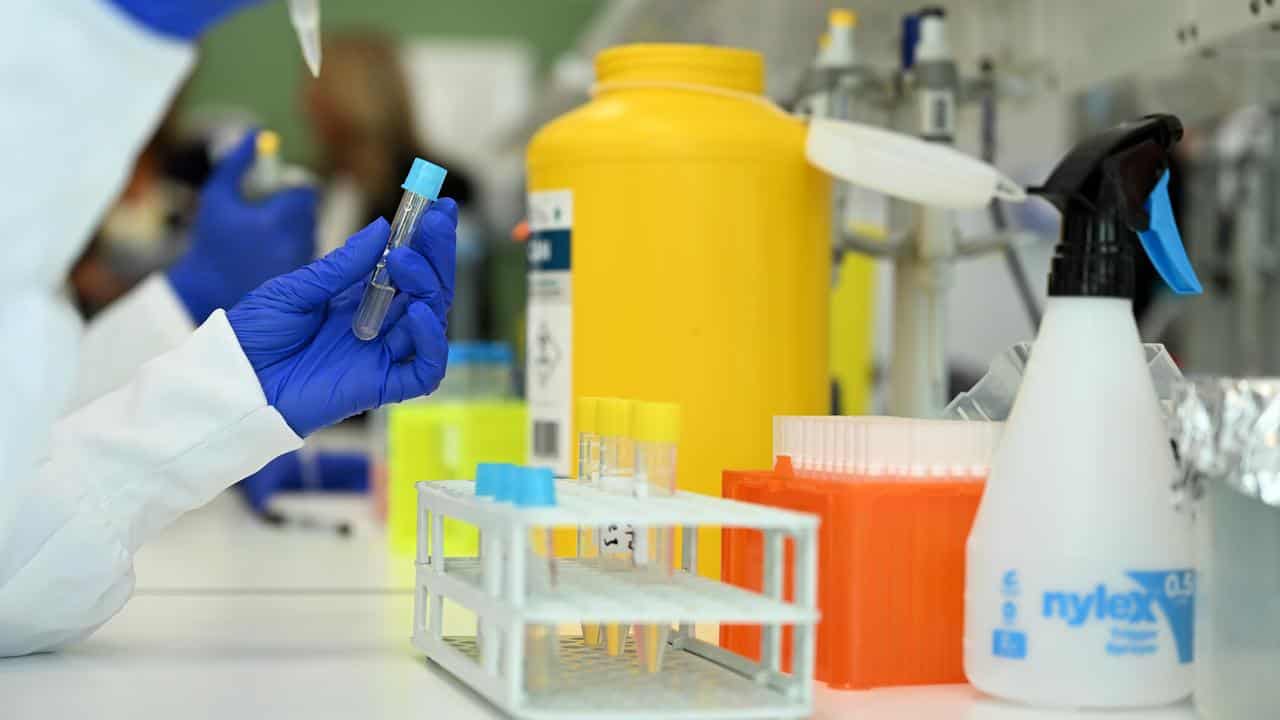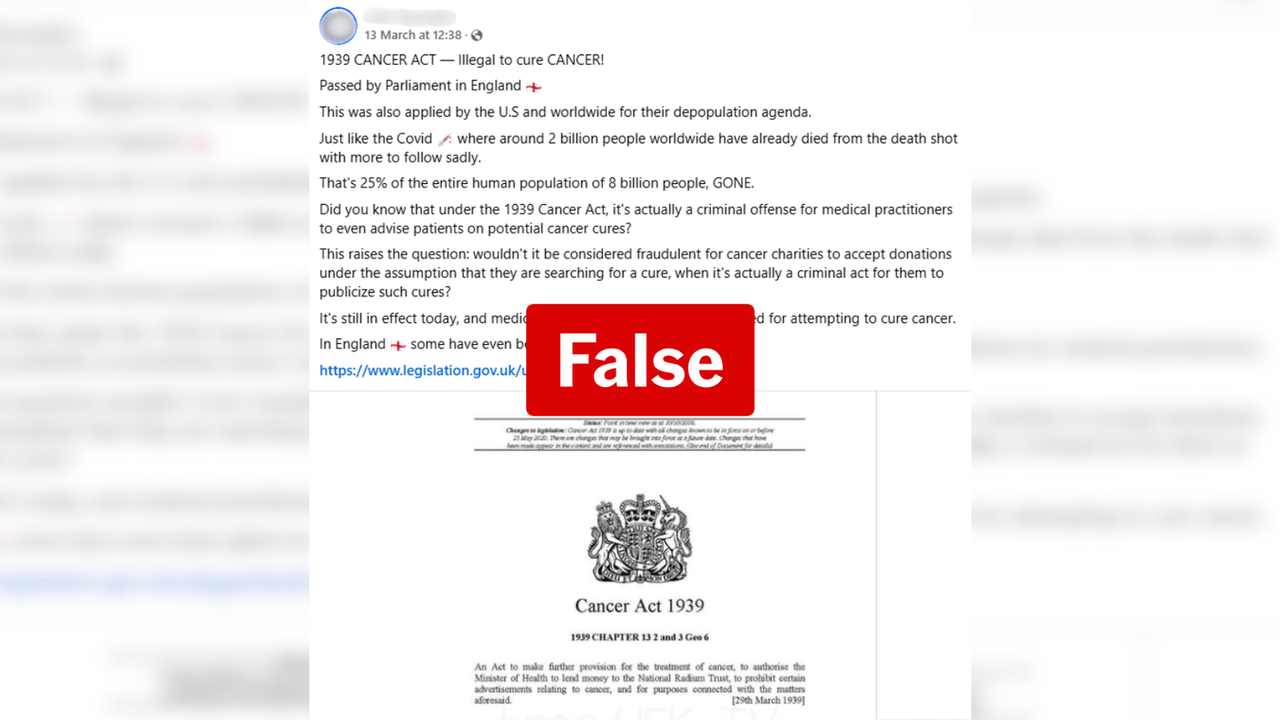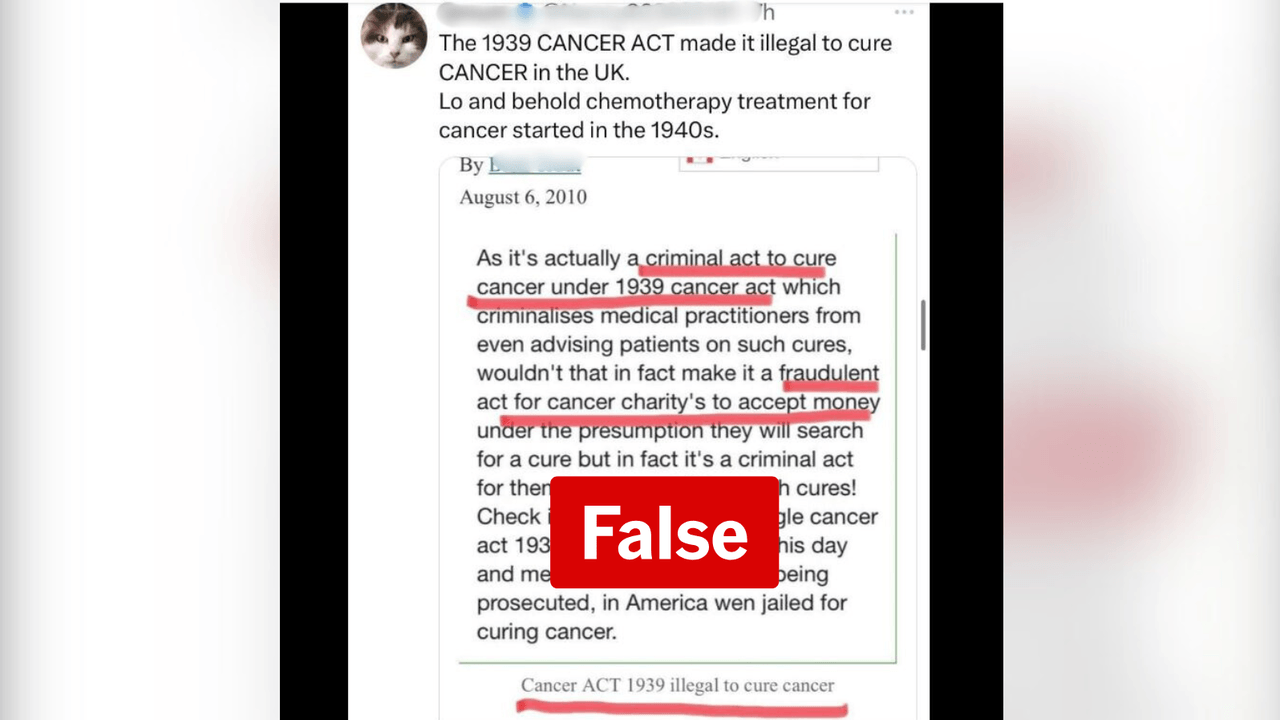
What was claimed
The UK Cancer Act 1939 makes it illegal to cure cancer.
Our verdict
False. The act does not make it illegal to cure cancer.
AAP FACTCHECK - It is not illegal to cure cancer, research cancer cures or advise patients about treatments in the UK, despite rumours circulating on social media.
The false claim misinterprets legislation that prohibits advertising cancer drugs.
The claim appears in a Facebook post by an Australian user on March 13, 2025.
"1939 CANCER ACT — Illegal to cure CANCER!" the post said.
"Did you know that under the 1939 Cancer Act, it's actually a criminal offense [sic] for medical practitioners to even advise patients on potential cancer cures?
"This raises the question: wouldn't it be considered fraudulent for cancer charities to accept donations under the assumption that they are searching for a cure, when it's actually a criminal act for them to publicize [sic] such cures?"

However, the Cancer Act 1939 does not make it illegal to research cancer cures, publish research findings or for doctors to advise patients about treatments.
The original legislation, passed before the National Health Service was created, outlined how cancer treatments should be paid for and administered across the UK.
Over time, most sections have been repealed or subsumed into other laws, but one part - section four, relating to the prohibition of certain advertisements - remains.
It outlaws the publication of any ads containing offers to treat cancer, prescribe remedies or give advice relating to treatment.
Exceptions are made for material aimed at members of parliament, medical practitioners, nurses and pharmacists, along with ads produced by local councils and voluntary hospitals, which were private, non-profit hospitals.

Nick James, a researcher at the Institute of Cancer Research, said there was no substance to the claim the legislation represented a ban on cancer cures.
It was designed to protect the public from "snake oil salesmen" offering unproven therapies," he said.
"The main purpose of the act is the opposite - to 'make further provision for the treatment of cancer' and to 'prohibit certain advertisements'," Prof James told AAP FactCheck.
The ban on ads covers chemotherapy and radiation along with unproven or alternative treatments.
Frances Downey, head of science and research policy at Cancer Research UK, said the Cancer Act was designed to protect patients from being bombarded with ads for treatments.
This includes adverts from medical professionals, pharmaceutical companies and alternative practitioners, Dr Downey told AAP FactCheck.

Simon Crabb, an experimental cancer therapeutics expert at the University of Southampton, said the UK has a "very vibrant cancer research culture" supported by the government, charities, and the commercial sector.
"In the UK, direct-to-patient advertising for most medical treatments (not just cancer treatments) is restricted unlike, for instance, in the US," Professor Crabb told AAP FactCheck.
"But this does not restrict research and/or reporting of research breakthroughs."
The Human Medicines Regulations 2012 prohibit ads on most prescription-only medicines available in the UK to the public.
Advertising prescription and pharmacist-only drugs directly to consumers is also banned in Australia, where the Therapeutic Goods Administration regulates such products.
Several individuals have been fined under the UK Cancer Act, including a man who advertised his ability to cure cancer through "energy healing" and a woman who promoted herbal remedies sold on eBay as cancer treatments.
False claims about the act have previously been debunked by Full Fact.
AAP FactCheck is an accredited member of the International Fact-Checking Network. To keep up with our latest fact checks, follow us on Facebook, Instagram, Threads, X, BlueSky, TikTok and YouTube.




